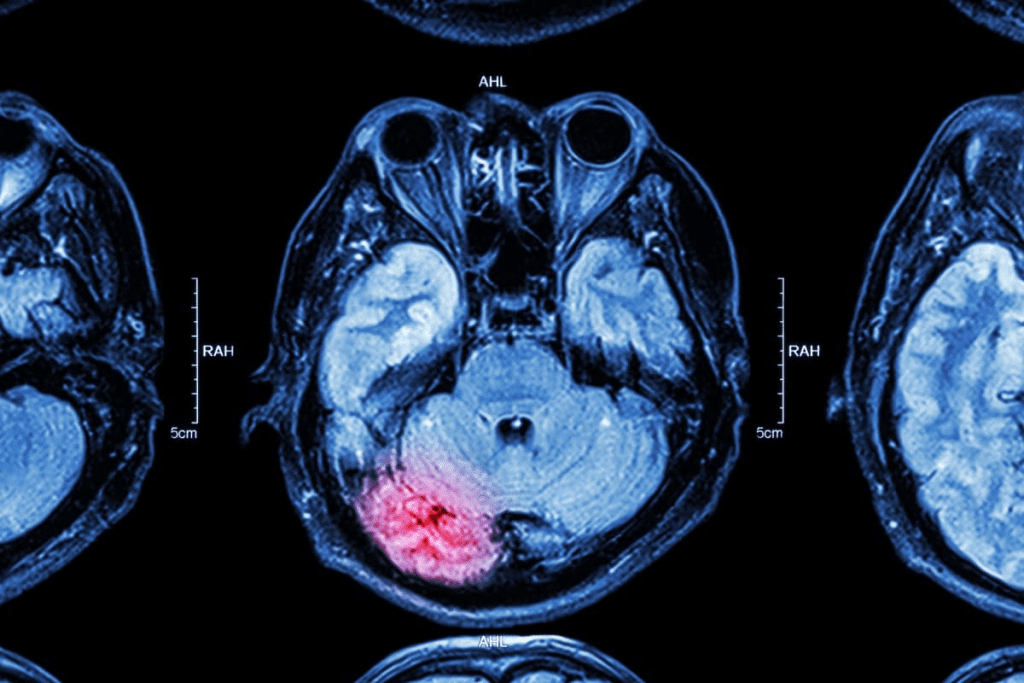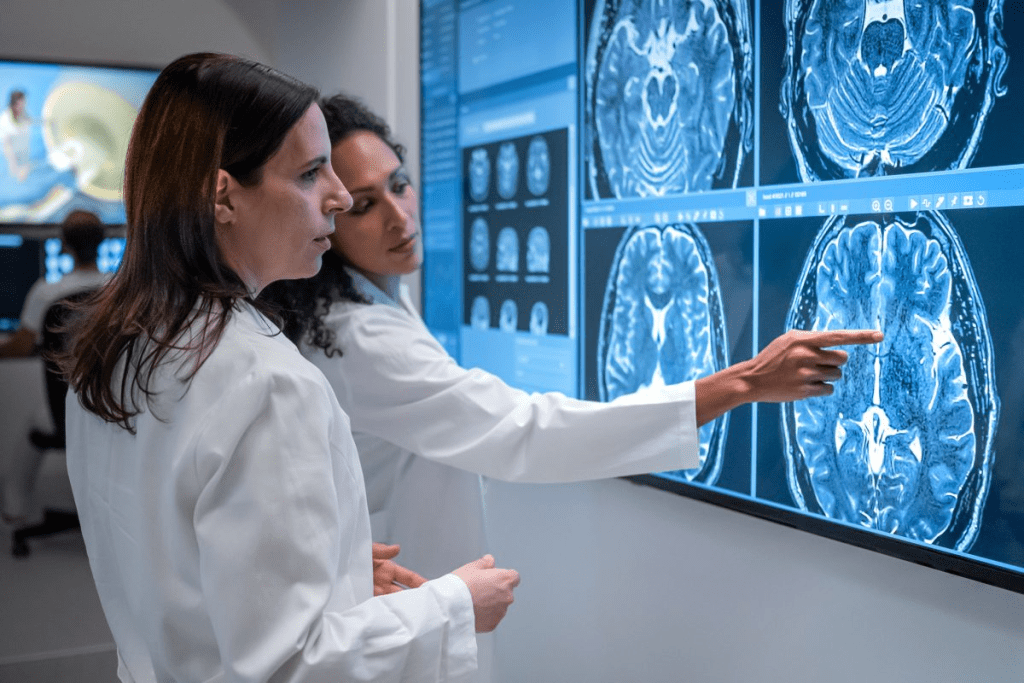Last Updated on November 25, 2025 by

Many patients wonder when they’ll get their MRI results after a scan. A recent study found the wait time is about 18.5 days on average. Almost half of the cases face delays. We explain the typical turnaround time and who will deliver the findings of your mri scan to you.
An MRI (Magnetic Resonance Imaging) scan shows detailed images of the body’s inside parts. This includes joints, blood vessels, and organs. Doctors use MRI scans to find out what’s wrong and decide the best treatment.
Getting MRI results can take a while. It depends on a few things. Usually, you’ll wait 1 to 2 weeks for your MRI scan results.
Studies from 2023 to 2025 show how long MRI results take. NHS England’s 2025 data found that about 22% of UK patients waited six weeks or more for MRI results.
Wait times vary a lot. This depends on how urgent your case is and how busy radiologists are.
Getting results right away is rare. It’s because MRI scans are complex. The radiologist’s workload and the complexity of the scan affect wait times.

For example, MRI scans with contrast need more detailed analysis. This makes the wait longer. Also, scans done at night or off-peak hours might take longer to process.
After a brain MRI, patients often wonder what happens next. The journey includes several key steps. These steps ensure accurate diagnosis and effective treatment planning.
The process starts with the MRI machine capturing detailed brain images. These images are then sent to a radiologist for review. The radiology technician ensures the images are of high quality and are sent correctly.
The radiologist checks the MRI and brain images for any issues. This step is vital for diagnosis and treatment planning.
After reviewing the images, the radiologist writes a detailed report. This report is shared with the referring physician. The physician then talks about the results with the patient. The time it takes can vary based on the radiologist’s workload and the case’s urgency.

In summary, the journey of your brain scan results involves careful image capture, thorough radiologist review, and timely report generation. Understanding these steps helps patients see the complexity and care in diagnosing and treating medical conditions.
The speed of MRI results depends on several important factors. Knowing these can help patients set realistic expectations and plan better.
The urgency of your health issue greatly affects how fast you get your scan or MRI results. For urgent cases like stroke or severe injury, MRI results are given priority. They are often ready in minutes to a few hours.
The amount of work radiologists have and the number of staff they have can slow down MRI results. Places with lots of cases and not enough staff might take longer. But places with good staffing and workflow can give results faster.
Every healthcare place has its own way of handling and processing MRIs.Some, like Liv Hospital, use fast processes and new tech to get MRI results out quickly. Knowing these ways can help you guess when you’ll get your results.
Understanding these factors helps patients guess when they’ll get their MRI results. This way, they can plan their next steps more easily.
Recent data shows how long patients wait for MRI results. This is important for those getting tests like a brain scan or MRI with contrast. Knowing these wait times helps manage patient expectations and improve healthcare.
A 2023 study found the average wait time for MRI exams in outpatient settings is 18.5 days. Almost 48% of cases faced delays. This shows that wait times vary at different healthcare places.
NHS England’s 2025 data shows about 22% of UK patients waited six weeks or more for test results, including MRI. In Scotland, the median wait for all diagnostic tests was 2.8 weeks. About 58% of radiology waits, like MRI, were done in six weeks by June 2025. These numbers give insight into MRI result wait times in different healthcare systems.
The comparison between US and UK wait times shows the challenges in healthcare. Understanding these statistics helps healthcare providers aim to reduce wait times and improve patient outcomes.
After your MRI scan, many things happen before you get your results. The healthcare system’s efficiency and its technology play big roles. They affect how quickly you get your MRI results.
The MRI images are first checked for quality. This makes sure they are clear and ready for review. The radiographer works from another room to keep the scan running smoothly.
Quality checks are key in the MRI process. They make sure the images are accurate and meet standards. This step is vital for a reliable diagnosis and effective treatment plans.
For complex conditions, specialists often need to review the MRI images. Radiologists work with other experts to fully understand the diagnosis. This teamwork helps create a treatment plan that fits the patient’s needs.
Knowing what happens behind the scenes helps us understand how long an MRI takes. Advanced technologies and good communication are essential for a smooth process.
Getting MRI results faster is possible with the right steps. Wait times can vary based on your medical condition and the facility’s rules. But there are ways to speed up the process.
Talking openly with your healthcare team can help. Ask about the wait time for your MRI results. Also, ask if you can get preliminary results or a summary from the radiologist.
Using patient portals and digital health records is another good strategy. Many places offer online access to your medical records, including test results.
Patient portals let you see your health info online. By using these tools, you can often see your MRI results right away. Make sure you know how to use the portal to get your results quickly.
It’s important to know when to follow up on your MRI results. Wait until the time given for your results before calling your doctor. When you call, have your questions ready and your appointment details ready.
Also, think about getting an online second opinion. If you’re waiting a long time, this can speed up getting your results. You can also ask for a copy of your MRI images right after your appointment.
Getting MRI results can make patients very anxious. It’s important to know how long it takes to get these results. This depends on the medical condition, how busy the radiologist is, and the hospital’s rules.
Liv Hospital focuses on great care and talking to patients. If you have an MRI, ask your doctor when you’ll get the results. This way, you can manage your expectations and feel less worried.
An MRI uses a strong machine to show detailed pictures of the inside of the body. The scan’s complexity and needing specialist opinions can affect how long it takes to get the results. By understanding these things and talking openly with your healthcare team, you can handle the wait better.
An MRI scan is a non-invasive way to see inside the body. It helps doctors find and track injuries, cancers, and brain disorders. It shows detailed pictures of the body’s internal parts.
Getting MRI results can take a few hours to weeks. It depends on the condition’s urgency, the radiologist’s work, and the facility’s rules.
Usually, you can’t get MRI results right away. The images must be checked by a radiologist. Then, a report is made and shared with your doctor.
Several things affect how long it takes to get MRI results. These include the condition’s urgency, the radiologist’s schedule, and the facility’s rules. The scan’s complexity and specialist opinions also play a role.
To get your MRI results faster, talk well with your healthcare team. Use patient portals and digital health records. You can also look for online second opinions.
After your scan, the images are processed and checked for quality. A radiologist then reviews them. They make a report and share it with your doctor.
In the US, MRI results can take hours to days. In the UK, NHS wait times vary. Some patients wait weeks or months.
Radiologists are key to MRI scans. They review images, write reports, and share findings with doctors. Their skills help make accurate diagnoses and guide treatment.
Yes, you can ask for your MRI images and report from your doctor. Many places offer patient portals or digital records for this.
To understand your MRI results, talk to your doctor or radiologist. They can explain the findings and guide your treatment plan.
Subscribe to our e-newsletter to stay informed about the latest innovations in the world of health and exclusive offers!